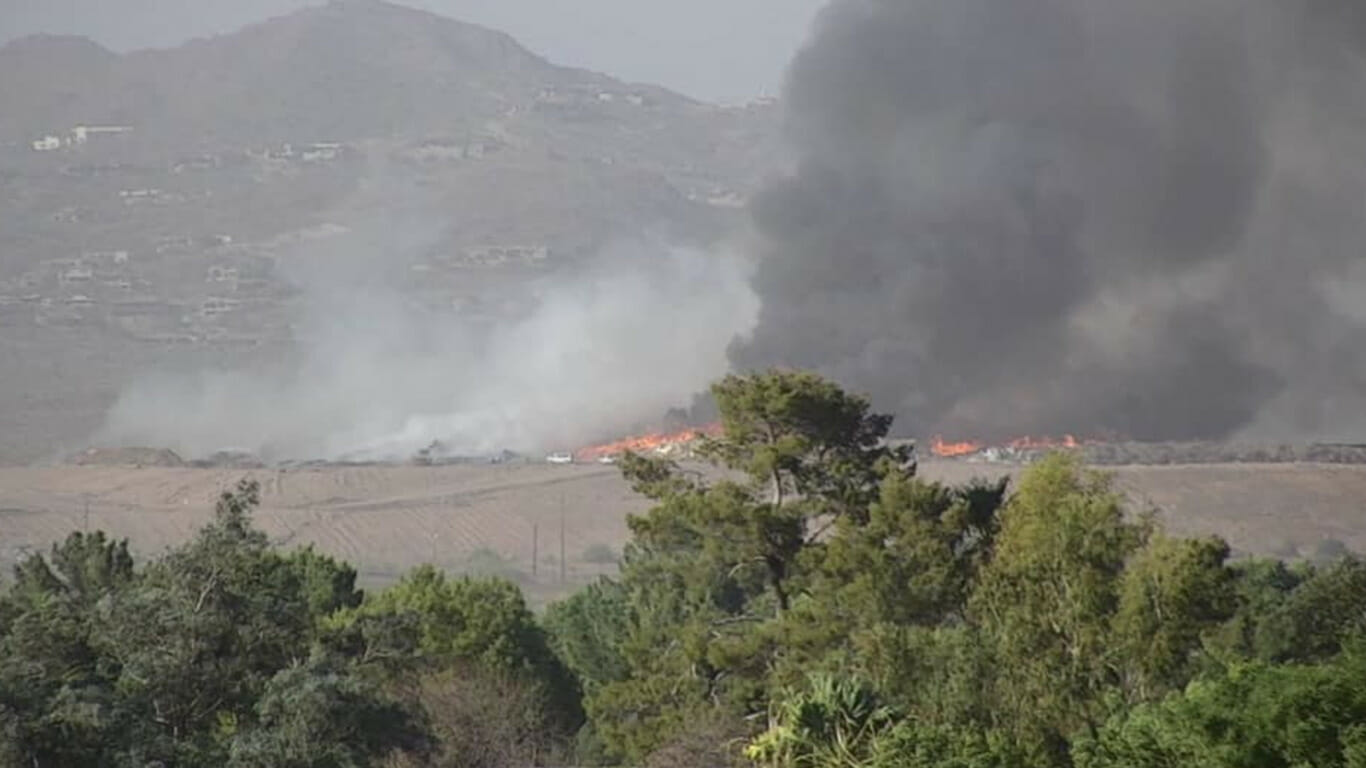A fire that broke out at a landfill at about 4 p.m. Saturday on the Salt River Indian Reservation, near N. Beeline Highway east of Scottsdale, had been reduced to a smolder by Tuesday afternoon.
LEARN MORE: Here’s why Maricopa County air quality is raising health concerns
After firefighters were done combating the blaze, said Chuck Kmet, emergency manager for the Salt River Pima-Maricopa Indian Community, a green waste contractor was hired to help further manage the remaining smolder.
Though the flame has been stifled, the lingering smoke may cause or exacerbate various health concerns, one expert said.
Stacey Mortenson at the American Lung Association in Arizona said people may experience a variety of symptoms in response to the smoke, such as wheezing, chest heaviness, lightheadedness, dizziness and shortness of, or difficulty taking, breaths.
“Even healthy individuals are at risk,” said Mortenson, “so people need to be very cognizant of any symptoms they may be developing … If the smoke is nearby and they are smelling it, if they are smelling it, they’re likely inhaling it.”
Though everyone who can smell the smoke could be at risk, there are still particular groups that have been identified at higher risk. Mortensen said these include “children under the age of 18, seniors over the age of 65 and those who have chronic conditions, especially including asthma, COPD (chronic obstructive pulmonary disease), chronic heart disease and diabetes.”
Mortenson added: “Smoke … has very small particles in it. It can be just a third of the width of a human hair…you’re not going to feel that you breathed it in, but that very small particle can start to lodge in your lungs and build up.”
Mortenson advises people to stay indoors if they can, close windows, shut fire dampers and run air conditioners to circulate healthy air throughout their homes. For those in high-risk groups near the smoke, Mortenson also said it would be wise to prepare a travel pack in case they need to evacuate. These packs should include delivery devices, like asthma inhalers, prescription medications and insurance cards – anything needed to ensure that they stay healthy.
For anyone experiencing symptoms associated with smoke inhalation, it’s best to call and consult with your doctor, Mortenson said. But these symptoms, Mortenson confirmed, might not appear immediately.
“If they are having those symptoms just a day or two later, they can definitely connect that back to the smoke exposure.”




